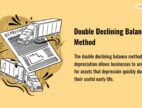7 Smart Ways To Manage Personal Finances
by Arnab Dey Finance Published on: 08 June 2023 Last Updated on: 08 May 2025

Budgeting, building short as well as long-term goals, conserving, spending, and investing marks as a few periodic traits of personal finance.
The main concern is to accomplish your financial goals, whether they are to have ample money for covering quick expenses, to plan for retirement, and to protect your children’s tertiary education.
It all concludes with determining ways to meet your requirements within your means by considering your salary, the cost of living, and all your wealth goals. A sound knowledge of finances is also important. Wise financial decisions and creating a difference between wonderful and harmful advice are made easier as an effect.
7 Smart Ways To Manage Personal Finances
1. Track your Finances.

Tracking your finance is the key to building a budget, the idea has been revolving for years and is arguably the most direct stature. Analyze how much income you ought to spend every month based on your lifestyle, income, and needs to make a proper budget.
Such a calculation will let you better take care of your expenses and structure your savings along with spending as and when needed. You might want to stalk and fulfill your financial goals in a better way without surrendering your everyday luxuries if you can control more and have knowledge of your spending habits.
2. Savings come before spending.
As a general guideline, it is full of perks to set aside a part of your monthly income in the first month before actually spending it on normal necessities like rent, energy, groceries, repayments on loans, and insurance premiums, to name a few. By doing this, an individual can be certain that he/she is ready for sudden events, along with reducing the probability that you might spend more than your plan.
3. Set financial objectives

Setting financial objectives can help you remain focused and avoid overspending. Make strategies about what you want to achieve with your investment both in the present and future.
Consequently, you should start investing in economic developments if you wish to achieve your financial goals in the long-term basis, for instance, your dream house, your child’s health and education, retirement, as well as a commentator of additional things. Make sure you set attainable objectives having clear deadlines. Such a plan will enable you to be motivated as well as ensure you use your savings in a wise manner.
4. Start implanting early.
It’s a good idea to start collecting money as quickly as possible. This lets you increase your money and, as time passes by, earn greater returns. Try to start investing and saving money right after you get your initial paycheck. Choose from equity, balance, or debt funds, and swap between them whenever you want without incurring any additional fees.
Additionally, the plan rewards you for maintaining your investment for a longer length of time and paying all of your premiums on time without any defaults with loyalty additions and financial boosters. This significantly raises your overall income. You can also decide whether to make a one-time payment, a monthly, biannual, or annual premium payment.
You now need help from an investment advisor group to help you out in this process.
5. Debt repayment strategy.

You may be able to handle your money more effectively and feel less anxious about money if you pay off your debt.
The snowball approach emphasizes paying down your smaller balances first. You continue to pay the bare minimum towards all of the debts. In addition, you utilize any additional funds to settle your smallest balance. The money you’ve freed up can then be used to settle your next-smallest balance, and so on. This can indicate that it will take longer to pay off loans with higher interest rates. And in the long run, that can cost you more.
The debt avalanche approach, also known as the highest-interest-rate method, calls for you to rank your debts according to their rates of interest, from highest to lowest. The debt with the greatest interest rate receives your initial payment. Once that’s paid off, you can utilize the additional money to settle the following loan on your list. Additionally, you keep making the required minimum payment on all of your loans.
6. Start to Save Early.
It’s important to get your savings off to the best start possible. You don’t have to save huge amounts, you can start with a little amount, for example, you start saving 5000 per month from the age of 25 till the age of 50. So you save 60,000 per year.
This amount that you save will be useful in the future for many purposes, which is why it is good to save from an early age. It is simply said that the sooner you begin saving, the greater the interest rate you’ll end up earning. Along with the benefit of compounding, you can achieve interest not only on your protection but also on the annual returns. Due to the ability to compound over time, saving money earlier helps to generate more money.
7. Putting money aside for emergency purposes.

You will ultimately feel good about your economic status when you save in a fund dedicated to emergencies for unforeseen events and life occurrences, like the need for significant house renovations.
Among your financial purposes, the major one is to expand your money. In that case, you may consider the listed financial advice for bearing unforeseen costs:
- Keep in mind that interest rates are subject to change. Shopping around can be a fair idea, only if the extra interest attained sums up with time at a better rate.
- Collect additional funds and store them in your account. It’s better to deposit any tax or bonus refund while receiving from the employer in your dedicated bank account. Moreover, your savings will improve with more funds.
- Instead of purchasing items you want, go for things that you actually need. The reason being you can donate the remaining accounts to the savings.
- Automate your investments as well as savings. It might be possible to create recurring transfers to a savings account along with the help of your employer and maximize savings without giving up on the things you actually want.
Read Also:



































































































